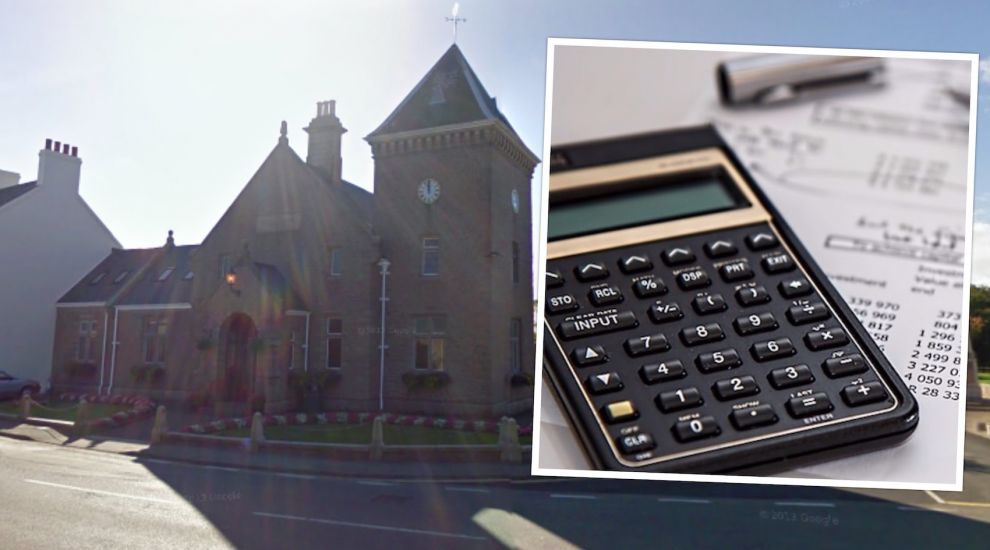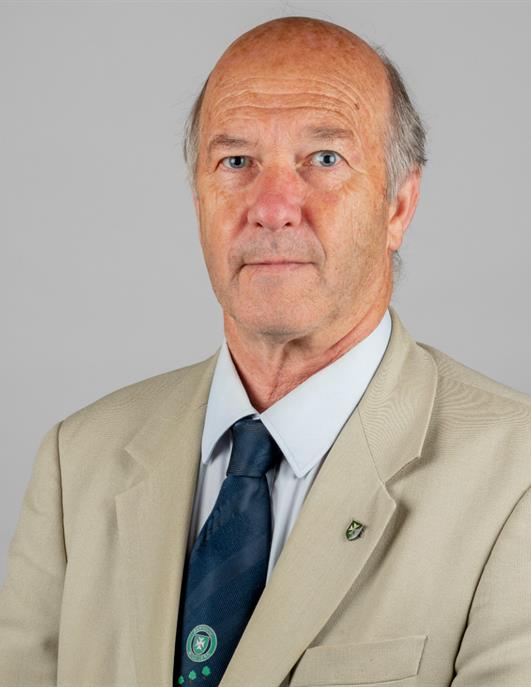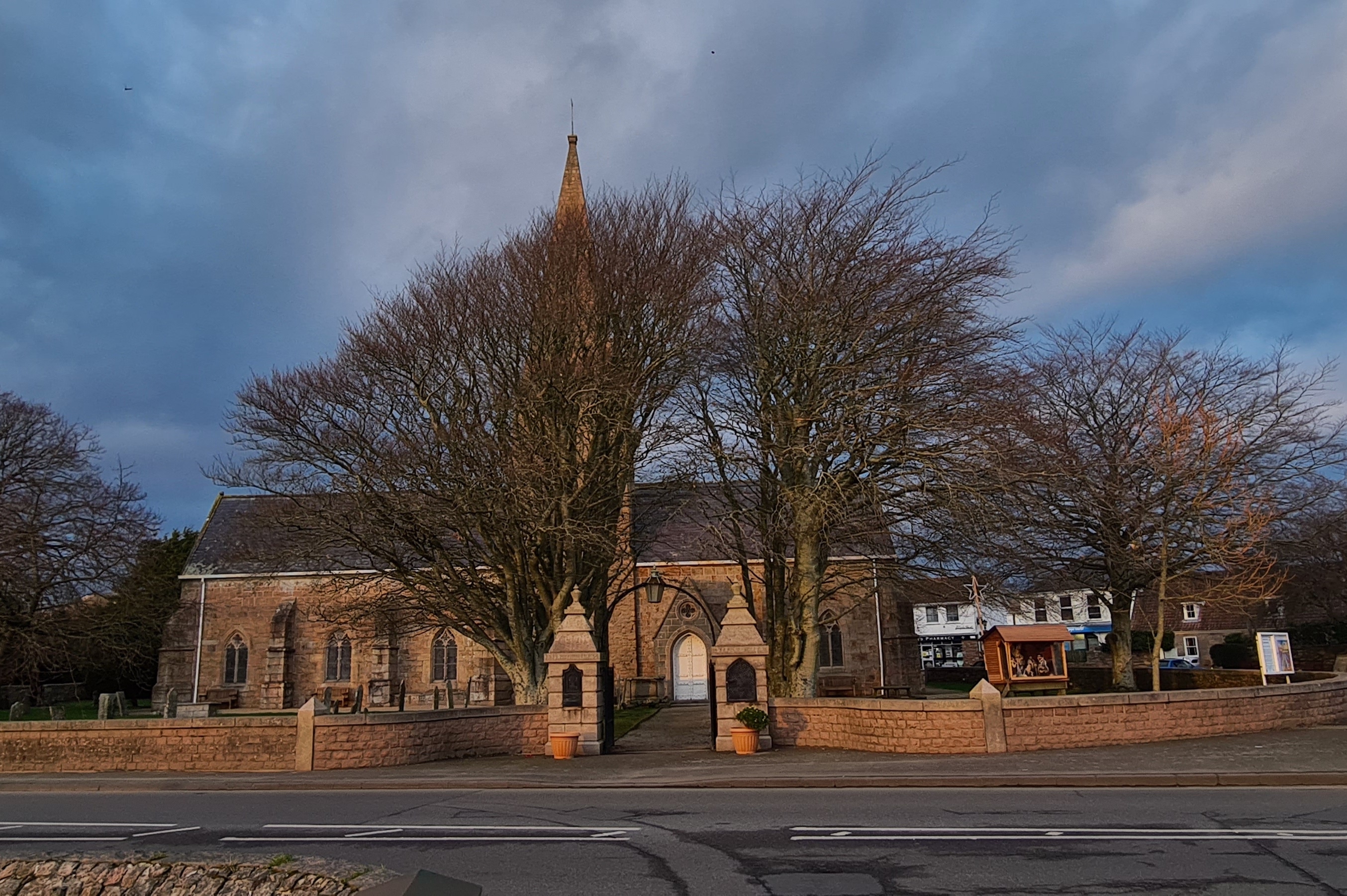

St. John Parish and Church officials have shared conflicting accounts of discussions over whether Parish money should be used to pay the legal fees in the Constable’s dangerous driving case.
They gave their testimonies yesterday before the Royal Court, which has been asked to decide whether Constable Chris Taylor breached his oath of office, and whether his two Parish Procureurs, Stephen Hewlett and Michel Larose, failed in their duty to protect the parish’s finances.
The Royal Court has an "inherent supervisory jurisdiction" over Jersey's Connétables and parish officers, including the Procureurs du Bien Public, who are responsible for managing parish accounts.

Pictured: The Attorney General's representation was made following Constable Taylor's conviction for dangerous driving.
The Attorney General, Mark Temple, filed a representation after Constable Taylor’s conviction for dangerous driving on 20 August 2020, relating to an incident on 2 June 2019, during which he had repeatedly driven his car at a slow speed into the legs of a cycling race marshal on La Rue de Bechet es Cats in Trinity.
St. John’s Rector, Beverley Sproats, appeared before the Court to be cross-examined about the statement she had provided.
In answer to questions from Advocate Hiren Mistry, who is representing Mr Hewlett, Mrs Sproats said that, during a Parish Assembly, Mr Hewlett had said he had sought advice from “the AG” (the Attorney General) about using parish funds to pay Constable Taylor’s legal fees.
“I remember him using the abbreviation,” she told the Court, adding that Mr Hewlett had spoken in a “strangled tone of voice."
She said that, while Mr Hewlett might not have been heard at the back of the Parish Hall, he would have been audible by other people in the vicinity.

Pictured: Advocate Hiren Mistry is representing Stephen Hewlett, one of St. John's Procureurs.
Advocate Mistry said his client denied saying he had taken advice from anyone, adding that Mrs Sproats’ account was not reflected in the minutes of the meeting in question.
The Rector replied that the minutes were only a “draft” to which she had submitted comments, such as including the questions about legal advice, to the Constable, as well as the Parish Secretary and Procureurs.
However, she added that the minutes were never approved, as the Constable said at a subsequent meeting that he had received legal advice that they shouldn’t be considered.
She also said that Mr Hewlett had told the Parish Assembly that seeking legal advice would incur more expenses, when a lot of money had already been spent on the case.
Following questions from Michel Larose’s Lawyer Advocate Nina Benest, Mrs Sproats described his answers on the day as “hesitant”.

Pictured: The Rector of St. John and two Church Wardens appeared in Court to be cross-examined about their statements.
Stewart Langhorn and Nick Crocker, St. John’s Church Wardens, also appeared before Court.
Mr Langhorn said that when Mr Crocker questioned the use of Parish funds, Mr Hewlett suggested it was “disrespectful” to discuss the Constable’s account that he was acting on Parish business at the time of the offence.
He described the Procureurs as being resistant to questions.
Mr Langhorn suggested the agenda for the Parish Hall wrongly stated the parish accounts had been “unanimously agreed”, as the Committee hadn’t been completed at that time.
“The idea that something could be agreed before the meeting had taken place... seems indicative of the conduct of some of these meetings,” he said.
He also suggested that the Parish Council had refused to release the notes taken by the three administrators during the Parish Assembly.

Pictured: The Rector and Church Wardens all said Mr Hewlett had told the Assembly he had sought advice from the "AG", the Attorney General.
According to him, Mr Hewlett “shouted” that he had gone to the Royal Court and asked for advice from the “AG” but that no one could see the advice.
“If an elected official takes public money and spends it on something not public, then that is not the responsibility of an elected official - those were the questions at the meeting,” Mr Langhorn said.
“If you are going to serve the people of your parish, you have to do so in a legal way. You don’t tell people questioning you to 'shut up' and invite other people to bully them.”
Mr Crocker said that questions about the use of Parish funds had only been raised in the Assembly on 15 July because at the previous meeting, no one had knowledge that the issue would be raised.
“We would have asked more if we had knowledge of the issue on 7 July,” he said.
He said he had proposed that legal advice should be sought about the payment of the fees before any further money should be paid by the Parish.
He suggested that Mr Hewlett had been “speaking sideways” when mentioning he had sought advice from the Attorney General. “It was quite soft-spoken almost looking across the desk rather than out to the room,” he said.
Pictured: The Director of the Civil Division at the Law Officers’ Department said no one had been asked to give advice or given advice “on the use of parish funds to pay for the legal fees."
The Court heard that the Director of the Civil Division at the Law Officers’ Department had said no one had been asked to give advice or given advice “on the use of parish funds to pay for the legal fees."
Mr Hewlett was then questioned by the Solicitor General. During questioning, he described articles in this publication about the Constable’s criminal case and the use of parish funds as a “witch hunt”, adding that the prosecution against him was not justified. “He has been treated unfairly," he said, before urging the Court to consider Constable Taylor’s record of service.
The Procureur said the first cheque paid to BCR Law was signed before the Parish’s insurer had confirmed whether they would cover any of the fees. He said that, due to the pandemic, the Parish was struggling to get any reply from the company.
He said it was “quite obvious” Constable Taylor was acting in an official capacity, as he had introduced himself as Constable.
Mr Hewlett denied saying he had sought advice from the Attorney General and that “all three menaces are wrong” when referring to Mrs Sproats, and the Church Wardens.

Pictured: Mr Hewlett said he had trusted the Constable when he said he would repay any shortfall from the insurance claim.
He said it was only after the first cheque of over £2,000 had been paid to the law firm that Constable Taylor had agreed to pay for any shortfall after the insurance claim, but that it didn’t occur to him to take it in writing as the Constable is a “trustworthy man."
The Court heard that Constable Taylor went to Mr Larose’s house with a cheque for BCR, which he asked him to sign. Mr Larose refused, saying he felt “uneasy that this was the appropriate course of action” and the Constable left with the cheque.
A few days later, Mr Hewlett had signed the cheque. It was only after the first cheque had been sent that the two Procureurs discussed whether the Constable had been acting in his official capacity at the time of the driving offence, which they concluded he had.
Mr Larose said that from the very beginning he had in his mind that “in no way he was going to see any parishioners to pay [the Constable’s] legal fees."
He added that the Constable had given guarantees he would pay the money.
Constable Taylor declined to be cross-examined on the statement he had provided.
All parties will sum up this morning before the Royal Court Commissioner Sir William Bailhache, who is sitting with Jurats Charles Blampied, Jerry Ramsden and Jane Ronge. They will then retire to consider their decision.
Comments
Comments on this story express the views of the commentator only, not Bailiwick Publishing. We are unable to guarantee the accuracy of any of those comments.